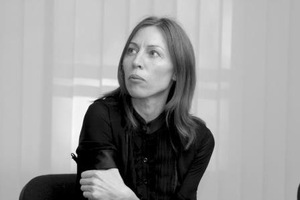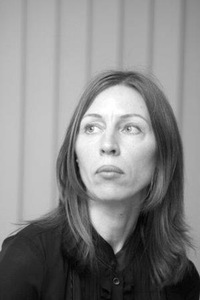DAIVA ČEPAUSKAITĖ ABOUT ART, VEINS AND OTHER RELATIONS 8
In brief: The poetess, playwright and actress Daiva Čepauskaitė is interviewed without any special occasion. She is asked about absurd things that had happened in her life, about the most beloved place in Kaunas, about the situation of culture and artists in the society today.
“Nobody pushed artists away to the margins of the society. We have the same conditions to create and work like other members of our society. I never felt and feel like in a margin of the society. The situation of culture is not bad also. The funding of culture is poor but not the culture itself,” D.Čepauskaitė believes.
When asked about the importance of art to a human being, the poetess and playwright emphasises that one should think about art wider as it is not only fine arts, theatre, music, literature and other works of a human being. Nature can also be understood as an artwork of the Creator, according to her.
As for her medical education, D. Čepauskaitė states that she never had a chance to apply her knowledge in practice – she has not cured a single person as she was never involved in this. Still, medical studies gave her understanding about the human body, physiology and taught to look at these things as a natural part of life.
Speaking about freedom, D. Čepauskaitė reveals that for her freedom is the right and possibility to choose. She noticed that there is more freedom with age and that she learned to use it better. “When you do not know what you want, freedom may take you to a deadlock and later, when you know where you are going, freedom becomes your ally.”
According to her, the contemporary playwright should be honest, frank, sensitive and responsible. He/she should also be creative. “The playwright is not a chronicler of history, he/she creates own history. Still, if he/she uses some particular documentary facts for the story as clay, he/she should know what he makes of it – a jug or a night pot. History belongs to all of us, it is not only ownership of an artist; therefore, he/she should not treat it as his/her dream or hallucination,” the artist is sure.
D. Čepauskaitė thinks that there are many themes that should be analysed in our dramaturgy. This dramaturgy could be richer too. In her opinion, there are only single playwrights who hardly fill the concept “our dramaturgy.”


